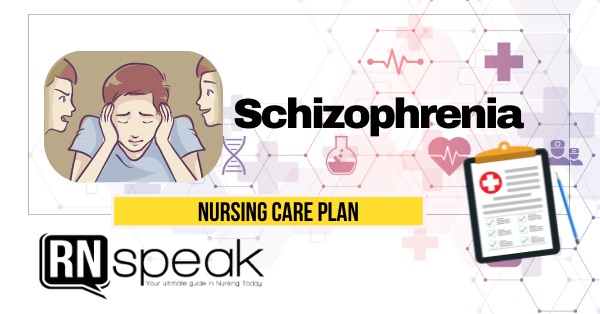Schizophrenia– is composed of a broad collection of symptoms from all domains of mental function. The term schizophrenia literally means “split mind” it is often confused with a split or multiple personalities. Individuals affected with such syndrome may show a wide range of disruptions in their ability to see, hear, and otherwise process information from the world around them. They may also experience a disruption in their normal thought processes, as well as their emotions and behaviors.
This basic aspect of disturbance in a patient can result in a lifetime disability, periodic hospitalization, and failure, and social relationships. These relationships are often disrupted as a direct consequence of the affected individual’s withdrawal and inability to communicate, which may be alternate with bouts of disruptive behavior. Family with schizophrenia can exacerbate the strain of caring for a mentally ill relative and the stigma of mental illness.
Because the disorder is so severe, and many people will be afflicted sometime in their life. Schizophrenia is now recognized as major public health concern.
Nursing Diagnosis: Disturbed Thought Processes
Possible Etiologies
(Related to)
- Inability to trust
- Panic level of anxiety
- Low self-esteem
- Inadequate support systems
- Negative role model
- Repressed fears
- Underdeveloped ego
- Possible hereditary factor
Defining Characteristics
(Evidenced by)
Suspiciousness of others, resulting in
- Alteration in societal participation
- Inability to meet basic needs
- Inappropriate use of defense mechanisms
Hypervigilance Distractibility Inappropriate non–reality-based thinking Inaccurate interpretation of the environment
Goals/Objectives
Short-Term Goal
Client will develop trust in at least one staff member within 1 week.
Long-Term Goal
Client will demonstrate the use of more adaptive coping skills, as evidenced by the appropriateness of interactions and willingness to participate in the therapeutic community.
Outcome Criteria
- Client is able to appraise situations realistically and to refrain from projecting their own feelings onto the environment.
- Client is able to recognize and clarify possible misinterpretations of the behaviors and verbalizations of others.
- Client eats food from a tray and takes medications without evidence of mistrust.
- Client appropriately interacts and cooperates with staff and peers in the therapeutic community setting.
Schizophrenia Nursing Care Plan
| Nursing actions | Rationale |
| Encourage same staff to work with client as much as possible | To promote the development of trusting relationship |
| Avoid physical contact. | Suspicious clients may perceive touch as a threatening gesture. |
| Avoid laughing, whispering, or talking quietly where client can see but not hear what is being said. | Suspicious clients often believe others are discussing them, and secretive behaviors reinforce the paranoid feelings. |
| Be honest and keep all promises. | Honesty and dependability promote a trusting relationship. |
| A creative approach may have to be used to encourage food intake (e.g., canned food and client’s own can opener or family-style meals). | Suspicious clients may believe they are being poisoned and refuse to eat food from the individually prepared tray. |
| Mouth checks may be necessary after medication administration | To verify that client is swallowing the tablets or capsules. Suspicious clients may believe they are being poisoned with their medication and attempt to discard the pills. |
| Activities should never include anything competitive. Activities that encourage a one-to-one relationship with the nurse or therapist are best. | Competitive activities are very threatening to suspicious clients. |
| Encourage client to verbalize true feelings. The nurse should avoid becoming defensive when angry feelings are directed at him or her. | Verbalization of feelings in a nonthreatening environment may help client come to terms with long-unresolved issues. |
| An assertive, matter-of-fact, yet genuine approach is the least threatening to the suspicious person. | The suspicious client does not have the capacity to relate to an overly friendly, overly cheerful attitude. |
References
- Psychiatric/Mental Health Nursing: Concepts of Care 4th edition of Townsend, M.C. (2003) Schizophrenia 3rd edition by Oxford University Press 2011






![[Stroke] Cerebrovascular Accident Nursing Care Plan cerebrovascular accident nursing care plan](https://rnspeak.com/wp-content/uploads/2021/03/CVA-nursing-care-plan-238x178.jpg)


I am regular visitor, how are you everybody? This piece of writing posted at this site is
really fastidious.